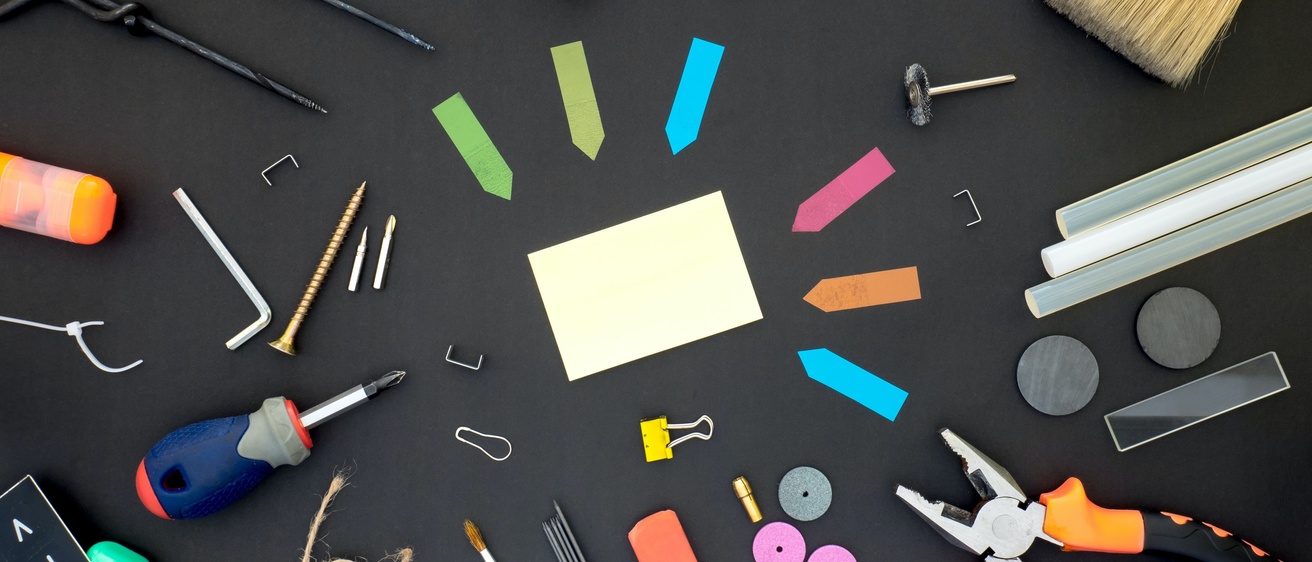Over the last few years, I’ve sometimes felt like I’m on an arduously long roller coaster ride in the dark. Just when I think I know what is going to happen next, there is a sharp turn or a stomach-dropping descent that comes out of nowhere. Before I’ve even had a moment to process or feel relief, I have noticed that I’m bracing for or fearing whatever unexpected turn is up next.
There have been more turns, ups, and downs than I could have imagined. We are living in a time filled with uncertainty and are facing a slew of social, economic and health difficulties. Though no one could have predicted the combination of challenges thrown at us in recent years or those that lie ahead, there are things we can individually focus on to help us manage them - almost like a well-being “toolkit” perhaps.
Below are some “tools” to help us better prepare for and/or cope with the unexpected twists, turns, ups and downs of life.
Gratitude
Reflecting on and appreciating the good things in your life can have many benefits, including improvements in psychological health, sleep, relationships, and overall well-being. Even in hard times, gratitude can shift our perspectives and give us hope for the future. If this doesn’t come easy to you, you could set aside time to focus on or write down what you are thankful for, or intentionally increase your expression of gratitude to family, friends, and/or colleagues.
Dedicated Time for Things You Enjoy
Sometimes when things get busy, it is hard to take time out for ourselves. About a year into the pandemic, I realized I was focusing almost all my energy on keeping things afloat around me. It was pretty miserable. I almost had to physically pencil myself into my own to-do list. I have been playing tennis more, listening to new podcasts, and reading a few books I’ve been intending to read for years. It has helped immensely. Everyone’s idea of fun or relaxation is different. It could be movement, enjoying nature, connecting with others, or creative endeavors. I’d encourage you to think of what you truly enjoy or what new things you might want to try, and then committing time to make it happen—even if really small amounts at first.
Healthy Routines
Related to time for enjoyment, it is also important to prioritize foundational healthy behaviors. I’m sure we’ve all heard to “put your own oxygen mask on first” or that “you can’t pour from an empty cup”. However, knowing how important self-care is and doing it are sometimes two different things. No matter what is going on in our lives, things like getting a good night’s rest and nourishing and moving our bodies can help us endure uncertainty or tackle stressors as they come up. Think of small ways you can reinvent your routine.
Boundaries
Burnout has been an increasingly common experience these last couple of years, and I’ve experienced it myself. In many ways, the pandemic pushed many, particularly essential workers, beyond their limits. For others, it may have blurred the lines between work and the rest of life. Though we can’t always control every aspect of our work environments, there are small things we can do to set healthy boundaries. For example, avoiding back-to-back-to-back-to-back meetings, intentionally taking quick breaks for a walk or even to stand up to stretch, or asking for help or an extended deadline when needed.
Self-Compassion
Dr. Kristen Neff, a leading expert on self-compassion, defines it as treating ourselves with the same kindness, care, and concern that we would to a good friend. No one is perfect, and failure is a natural and recurring part of the human experience. If you make a big mistake or are having a hard time, focus on how you can comfort or care for yourself in the moment. Don’t be too harsh on yourself; treat yourself like you would treat a friend.
Laughter
There is probably a reason some people call it the “best medicine”. Laughter has been shown to have both short- and long-term benefits to health. Take time to do whatever makes you LOL, whether that be getting together with your funniest friend, watching a comedy, or viewing a few amusing TikTok videos.
Connection and Support from Others
With the pandemic limiting social interaction for such a prolonged period, a lot of us were left feeling lonely, desperately seeking human interaction, and needing support as we attempted to navigate our new circumstances. Making time to develop, maintain and/or strengthen relationships is crucial. If you find yourself lacking people to connect with, consider joining a club or student organization, or explore some volunteer opportunities.
Needing more formal support for your well-being toolkit? The university has a variety of resources on mental health and well-being. Students can check out Student Wellness or University Counseling Service. Faculty and staff can consider liveWELL or the Employee Assistance Program. These are just some of the options – check out Mental Health at Iowa for more resources.
It is worth noting that almost no one has a full toolkit with every single well-being tool in perfect condition, ready to meet any twist or turn that comes our way. However, we can all make small changes to build up our toolkit and optimize our well-being.
Cover photo by Dan Cristian Pădureț on Unsplash
